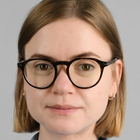Analysis and Comments
With the adoption of the 2030 Agenda, the reform of the UN Development System (UNDS) has received a new urgency. The UNDS is the biggest multilateral development actor, accounting for $18,4 billion, or 33%, of multilateral aid in 2015 (UN 2018). But its way of working is defined by path dependencies and old paradigms of mostly project-based development work. Systemic ills such as fragmentation and lack of system wide governance and management limits its coherence, effectiveness and efficiency. So more than any other development organization, the UNDS needs adjust its functions and overhaul its structures to be able to effectively deliver change towards sustainable development worldwide.
In 2017, the new UN Secretary-General Guterres proposed a number of ambitious reform proposals to member states. A draft resolution was negotiated in spring 2018 and is expected to be adopted by the General Assembly later this year. Implementation will take several years. The UN Research Project at the German Institute of Development and Sustainability (IDOS) is publishing a series of Briefing Papers on the reform of the UN Development System. Its purpose is to provide high-quality input to the reform discussions and to bring in diverse perspectives.
Team
Publications
Beyond aid: a new vision for the UN development function
Browne, Stephen / Frederik Matthys / Detlef Palm / Max-Otto Baumann (2025)
Discussion Paper (32/2025)
United Nations development work should engage all member states
Baumann, Max-Otto / Sebastian Haug (2025)
www.un.org/en/chronicle, 9 October 2025
Russia's role in UN development work: influence without investment?
Novoselova, Anna (2025)
Policy Brief (15/2025)
UN at 80 needs a new approach to reforming the UN development system
Baumann, Max-Otto (2025)
published on theglobalobservatory.org, 4 June 2025
Social contracts and the UN’s “Common Goals”: conceptualising a new role for international organisations
Loewe, Markus / Tina Zintl (2025)
Policy Brief (7/2025)
Imminent shifts at the UN: how Trump plays into China’s hands
Haug, Sebastian (2025)
in: The Diplomat, 28 January 2025
Trump 2.0 and the United Nations: implications for multilateral funding and leadership
Baumann, Max-Otto / Sebastian Haug / Marianne Beisheim (2025)
Bonn: Friedrich-Ebert-Stiftung e.V. (Discussion Paper)
Embracing universality: toward the future of United Nations development work
Baumann, Max-Otto / Haug, Sebastian (2024)
in: International Studies Perspectives, first published 18.11.2024
Why formal inclusion is not enough in global governance
Taggart, Jack / Sebastian Haug (2024)
published on www.bisa.ac.uk, 27.09.2024
De jure and de facto inclusivity in global governance
Taggart, Jack / Sebastian Haug (2024)
in: Review of International Studies, first published 26.09.2024
The Group of 77 and global dialogue in the United Nations General Assembly
Baumann, Max-Otto / Anna Novoselova / Javier Surasky / Philipp Schönrock (2024)
Discussion Paper (13/2024)
Plea for a stronger role for the UN Convention to Combat Desertification
Brüntrup, Michael (2024)
The Current Column of 17 June 2024
Mutual legitimation attempts: the United Nations and China's Belt and Road Initiative
Haug, Sebastian (2024)
in: International Affairs, 100 (3), 1207-1230
Why a new quantum must go hand in hand with higher quality
Aleksandrova, Mariya / Svea Koch (2024)
The Current Column of 27 May 2024
Universality in action: why and how United Nations development work should engage with high-income countries
Baumann, Max-Otto / Sebastian Haug
Discussion Paper 5/2024
Financing the United Nations: status quo, challenges and reform options
Baumann, Max-Otto / Haug, Sebastian (2024)
New York: Friedrich-Ebert-Stiftung
Pooled funding supports best practices in UN development work
Baumann, Max-Otto / Abualghaib, Ola (2024)
published on devpolicy.org, 21.03.2024
Deutschlands Engagement in der UN-Entwicklungspolitik: Erwartungen an eine Mittelmacht
Baumann, Max-Otto (2023)
published on dgvn.de, 20.12.2023
Goethe goes UNO: Forschungsorientierte Lehre im Bereich der Vereinten Nationen
Ruppel, Samantha / Julia Leib (2023)
in: Christiane Hof/ Susanne Boehm (Hrsg.), Forschungsorientiert lehren und lernen, Bielefeld: wbv Publikation, 145-156
Die Integrität des UN-Multilateralismus schützen
Baumann, Max-Otto (2023)
in: Vereinte Nationen 5/2023, 214
Accelerating the SDGs through the 2024 Summit of the Future
Beisheim, Marianne / Silke Weinlich (2023)
published on sdg.iisd.org, 01.02.2023
Germany and Namibia as co-leads for the United Nations: chances and challenges on the road to the 2024 UN Summit of the Future
Beisheim, Marianne / Silke Weinlich (2023)
in: SWP-Comment 03 2023
International organizations and differentiated universality: reinvigorating assessed contributions in United Nations funding
Haug, Sebastian / Nilima Gulrajani / Silke Weinlich (2022)
in: Global Perspectives 3 (1), article 39780
Partnerships for policy transfer: how Brazil and China engage in triangular cooperation with the United Nations
Waisbich, Laura Trajber / Sebastian Haug (2022)
Discussion Paper 15/2022
China's expanding engagement with the United Nations development pillar: the selective long-term approach of a programme country superpower
Baumann, Max-Otto / Sebastian Haug/ Silke Weinlich (2022)
Bonn: Friedrich Ebert Stiftung / German Institute of Development and Sustainability (IDOS), November 2022
Re-discovering assessed contributions in the UN system: Underexploited, yet full of potential
Weinlich, Silke / Nilima Gulrajani / Sebastian Haug (2022)
in: Dag Hammarskjöld Foundation and UN Multi-Partner Trust Fund Office (eds.), Financing the UN Development System: Joint Responsibilities in a World of Disarray, Uppsala/ New York: Dag Hammarskjöld Foundation, 127-130
Trouble at the UN: Western member states push back against Chinese-led FAO
Baumann, Max-Otto (2022)
published on thediplomat.com, 30.07.2022
Das UN-Entwicklungssystem im Umbruch?
Weinlich, Silke / Max-Otto Baumann (2022)
in: Vereinte Nationen (4), 147-152
Reinforcing United Nations funding: how the G7 can strengthen multilateralism
Weinlich, Silke / Nilima Gulrajani / Sebastian Haug (2022)
in: T7 Task Force International cooperation for the global common good, 03.05.2022
The G7 and multilateralism in times of aggression: Maintaining and strenghtening cooperative and inclusive approaches for the global common good
Beisheim, Marianne / Axel Berger / Lars Brozus / Adolf Kloke-Lesch / Ronja Scheler / Silke Weinlich (2022)
in: T7 Task Force International cooperation for the global common good (March 2022)
How can the G7 and the UN make multilateralism sustainable?
Weinlich, Silke / Marianne Beisheim (2022)
The Current Column of 14 February 2022
New rules, same practice? Analysing UN Development System reform effects at the country level
Weinlich, Silke / Max-Otto Baumann / Maria Cassens-Sasse / Rebecca Hadank-Rauch / Franziska Leibbrand / Marie Pardey / Manuel Simon / Anina Strey (2022)
Discussion Paper 3/2022
Fixing UN financing: a pandora’s box the World Health Organization should open
Gulrajani, Nilima / Sebastian Haug / Silke Weinlich (2022)
in: ODI Briefing/Policy Paper, published on odi.org, 26.01.2022
Our Common Agenda – Impetus for an inclusive and networked multilateralism for sustainable development. Statement
Schnappauf, Werner / Imme Scholz / Alexander Bassen et al. (2022)
Berlin: Rat für Nachhaltigkeit, published 20.01.2022
Our Common Agenda – Momentum für einen inklusiven und vernetzten Multilateralismus für nachhaltige Entwicklung
Schnappauf, Werner et al. (2022)
Stellungnahme des Rates für Nachhaltige Entwicklung; Berlin, 20.01.2022
Der Zweck der UN-Reform ist noch nicht überall angekommen
Weinlich, Silke / Baumann, Max-Otto (2022)
in: Welt-Sichten, 2/2022, 50-51
UN General Assembly voting on Ukraine – What does it tell us about African states’ relations with external partners?
Keijzer, Niels / Silke Weinlich / Sven Grimm (2022)
published on blogs.die-gdi.de, 04.03.2022
Beyond mainstreaming? Past, present and future of UN support for South-South and triangular cooperation
Haug, Sebastian (2022)
in: Asian Journal of Peacebuilding 10 (1), 15-44
Policy advice in UN development work: high expectations and practical constraints
Baumann, Max-Otto (2022)
in: Global Governance 28(3), 382-404
The EU-UNDP partnership and added value in EU development cooperation
Lundsgaarde, Erik (2021)
Discussion Paper 20/2021
Whither global public goods? No one is safe until everyone is safe
Hendra, John / Weinlich, Silke (2021)
in: Dag Hammarskjöld Foundation / UN Multi-Partner Trust Fund Office (Hrsg.), Financing the UN Development System: Time to Meet the Moment, Uppsala, New York: Dag Hammarskjöld Foundation, 141-144
Reformoptionen für eine effektive UN-Nachhaltigkeitsgovernance
Beisheim, Marianne / Cornelia Füllkrug-Weitzel / Lisi Maier, Imme Scholz / Silke Weinlich / Heidemarie Wieczorek-Zeul (2021)
Berlin: Rat für Nachhaltige Entwicklung
Reform options for effective UN sustainable development governance
Beisheim, Marianne / Cornelia Füllkrug-Weitzel / Lisi Maier / Imme Scholz / Silke Weinlich / Heidemarie Wieczorek-Zeul (2021)
Berlin: German Council for Sustainable Development
The review of the resident coordinator system: give UNDS reform a chance!
Weinlich, Silke (2021)
published on blogs.die-gdi.de, 21.06.2021
Beyond the single story: ‘Global South’ polyphonies
Trajber Waisbich, Laura / Supriya Roychoudhury / Sebastian Haug (2021)
in: Third World Quarterly 42 (9), 2086-2095
Deutschlands Multilateralismus – Der Status quo ist nicht genug
Weinlich, Silke (2021)
in: Global Policy Forum (Hrsg.), Baustellen des Multilateralismus, Bonn: Global Policy Forum, 57-64
Mainstreaming South-South and triangular cooperation: work in progress at the United Nations
Haug, Sebastian (2021)
Discussion Paper 15/2021
Wie die USA den Schaden an den Vereinten Nationen beheben können
Hendra, John / Silke Weinlich (2021)
German Development Institute / Deutsches Institut für Entwicklungspolitik (DIE), Die aktuelle Kolumne vom 18.01.2021
The case for greater project-level transparency of the UN’s development work
Baumann, Max-Otto (2021)
Briefing Paper 5/2021
Towards more policy advice: maximizing the UN’s assets to build back better
Hendra, John / Max Baumann (2020)
Briefing Paper 24/2020
Deutschlands Finanzierung des UN-Entwicklungssystems: Eine bessere Mischung für einen stärkeren Multilateralismus
Weinlich, Silke / Max-Otto Baumann / Erik Lundsgaarde (2020)
Analysen und Stellungnahmen 14/2020
Germany’s funding to the UNDS: towards a better mix for stronger multilateralism
Weinlich, Silke / Max-Otto Baumann / Erik Lundsgaarde (2020)
Briefing Paper 17/2020
Earmarked funding for multilateral development cooperation: asset and impediment
Baumann, Max-Otto / Erik Lundsgaarde / Silke Weinlich (2020)
Briefing Paper 16/2020
Funding the UN: support or constraint?
Baumann, Max-Otto / Silke Weinlich (2020)
in: Stephen Browne / Thomas G. Weiss (Eds.), Routledge handbook on the UN and development, Oxon, New York: Routledge, 151-164
Chinas Finanzierung des UN-Entwicklungssystems
Mao, Ruipeng / Weinlich Silke (2020)
in: Vereinte Nationen 68 (6), 261-266, Print/Online
How earmarking has become self-perpetuating in UN development co-operation
Baumann, Max-Otto (2020)
in: Development Policy Review 39 (3), 343-359
Multilateralism needs action, not celebrations
Hendra, John / Silke Weinlich (2020)
The Current Column of 21 September 2020
The ocean as a lifeline for the future of the planet
Hornidge, Anna-Katharina (2020)
The Current Column of 8 June 2020
UN reform and the COVID-19 pandemic – what role for the UN to better serve the world?
Baumann, Max-Otto / Silke Weinlich (2020)
International Development Blog vom 28.05.2020
The UN Joint SDG Fund: turning transformational potential into reality
Hendra, John / Silke Weinlich (2020)
in: Dag Hammarskjöld Foundation, UN Multi-Partner Trust Fund Office (Hrsg.), Financing the UN development system: time to walk the talk, Uppsala, New York: Dag Hammarskjöld Foundation, 94-97
Earmarking in the multilateral development system: many shades of grey
Weinlich, Silke / Max-Otto Baumann / Erik Lundsgaarde / Peter Wolff (2020)
Studies 101
Shades of grey: earmarking in the UN development system
Baumann, Max-Otto / Erik Lundsgaarde / Silke Weinlich (2019)
in: UN Multipartner Trust Fund Office, Dag Hammarskjöld Foundation (ed.), Financing the UN development system: time for hard choices, Upsala: Dag Hammarskjöld Foundation, 106-109
Current and future pathways for UN system-wide finance
Jens, Bruce/ Silke Weinlich (2019)
in: UN Multipartner Trust Fund Office, Dag Hammarskjöld Foundation (ed.), Financing the UN Development System: time for hard choices, Upsala: Dag Hammarskjöld Foundation, 119-123
The new Franco-German alliance for multilateralism
Kaplan, Lennart / Niels Keijzer (2019)
The Current Column of 16 September 2019
Wichtige Fortschritte, ungelöste Probleme: Bewertung der neuesten UNDS-Reformresolution
Baumann, Max-Otto / Silke Weinlich (2018)
Analysen und Stellungnahmen 10/2018
Repositioning but where – Is the UNDS fit for middle-income countries?
Schulz, Nils-Sjard (2018)
Briefing Paper 14/2018
Unfinished business: an appraisal of the latest UNDS reform resolution
Baumann, Max-Otto / Silke Weinlich (2018)
Briefing Paper 13/2018
Projects
Events
Workshop
New ideas for United Nations development cooperation
Bonn, 18 July 2025
Panel Discussion
Science in support of combatting land degradation
Bonn, 18 June 2024
Panel Discussion
Designing the new UN climate finance goal
Bonn and Online, 4 June 2024
Expert Workshop
Funding the UN system
Bonn, 06 November until 7 November 2023
Virtual Event
UN – Fit for Future Generations?
Online, 19.04.2023
Virtual Event
Financing the UN Development System: Embracing Change
Online, 29 November 2022
Virtual Event
Financing the future of multilateralism: lessons from the WHO for reforming the UN
Online, 12 July 2022
Panel Discussion
Bonn Alliance for Sustainability Research: Transform to Survive: A Sustainable Future for all?
Online, 3 September 2021
Virtual Event
The UN@75 and South-South cooperation
Online, 16 February 2021
Interaktive Diskussionsrunde
Was kann Deutschland für die Vereinten Nationen tun?
Berlin, 14 June 2018
Workshop
Financing UN Development Cooperation – Current Trends And New Directions
Bonn, 6 December 2016
Public Lecture
The future we want – the UN we need
Bonn, 24 October 2016




